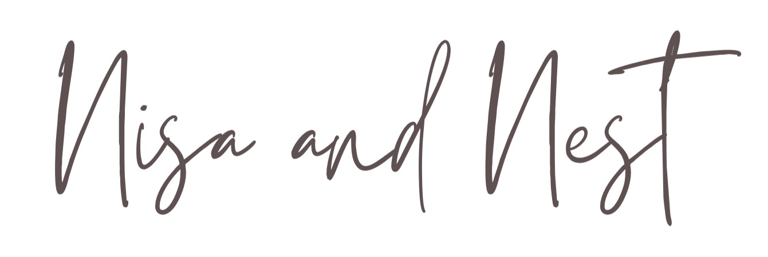A Mother’s Duʿā
A Mother’s Du’a Never Misses its Mark
THE FAMILY NEST
Nisa and Nest
7/25/20254 min read
A Mother's Duʿā
There is something deeply sacred, almost ineffable, about the way a mother raises her hands to the heavens in prayer. Her duʿā is not like other supplications; it is layered with sleepless nights, with tears shed in silence, with worries that sit so heavily on her heart they feel as if they will consume her from within.
It is a prayer shaped by her sacrifices, her silent endurance, her quiet triumphs, and her unrelenting love. When a mother whispers her duʿā, she pours not only words into the unseen, but fragments of her soul, fragments that have broken and been reassembled a thousand times in the service of her child.
In Islam, the duʿā of a mother holds a uniquely elevated place. It is not merely an expression of hope or a petition for help; it is often the embodiment of a lifetime of selfless devotion. It is born not of a moment, but of years of nurturing, of patient guidance, and of enduring hardships that few others would bear so willingly.
The Prophet Muhammad ﷺ emphasized the status of mothers repeatedly, and in the Qur’ān itself, Allah acknowledges the monumental role of mothers:
“His mother carried him in hardship and gave birth to him in hardship …” [Surah al-Ahqāf 46:15].
The verse continues with a beautiful duʿā of a grateful believer, asking Allah to make him grateful for the blessings upon himself and his parents, and to make his offspring righteous:
“My Lord! Inspire me to (always) be thankful for Your favours which You blessed me and my parents with, and to do good deeds that please You. And instil righteousness in my offspring. I truly repent to You, and I truly submit (to Your Will).”
This beautifully reflects how duʿā continues from parent to child, and back again: a parent praying for their child, and the child praying in turn for their parents.
Among the most profound examples in the Qur’ān of a mother’s supplication is the story of the mother of Maryam (ʻalayhā al-salām). Before Maryam was even born, her mother turned to her Lord with sincerity and trust:
“My Lord, I have vowed to You what is in my womb, dedicating it to Your service…” [Surah Āl ʻImrān 3:35].
She did not know whether the child would be male or female, strong or weak, but she knew to dedicate the fruit of her womb to Allah. And Allah responded not only by accepting her duʿā, but by raising Maryam to unparalleled status — the only woman mentioned by name in the Qur’ān and the only one with a chapter named after her. Her child, ʻĪsā (ʻalayhi al-salām), would become a prophet. From a single moment of heartfelt duʿā emerged generations of barakah.
And then there is Hajar (ʻalayhā al-salām), the mother of Ismāʻīl, whose story is not merely remembered, but physically re-enacted by millions of pilgrims every year. Left alone in the barren desert of Makkah with her infant son, her circumstances could not have been more dire. She was not surrounded by community or comfort, nor did she have material resources to draw upon. Yet her duʿā, though not fully captured in words, is immortalized through her actions. Her desperation as she ran between Safā and Marwah in search of water, driven by the love and fear only a mother can know, was not ignored by her Lord. From her anguish, from her unrelenting trust, Allah brought forth Zamzam — a spring that quenches the thirst of millions to this day. It was a mother's plea in solitude that transformed a desert into a place of divine blessing.
In our time, the form of a mother’s duʿā may differ in words and circumstance, but its essence remains the same. The world around us is shifting rapidly, often in ways that leave parents afraid and uncertain, and children vulnerable. Yet a mother’s supplication continues to rise, often unspoken, often unheard by those around her, but always heard by the One who is closer than her jugular vein. She may plead, “Yā Rabb, return my child to the straight path,” or whisper in anguish, “Protect them from what I cannot see, from what I cannot even understand.” Her voice may tremble with fear or fatigue, but her heart remains steadfast.
The Prophet Muhammad ﷺ said :
“Three supplications are answered without doubt: the supplication of the oppressed, the supplication of the traveler, and the supplication of a parent for his child.” [Tirmidhī]
This hadīth is a source of immense comfort and a reminder that a parent’s duʿā—especially a mother’s — is a weapon of light in the face of darkness. It can transcend time and space. It can reach a child who is physically distant, emotionally estranged, or spiritually lost.
It is crucial to understand that heartfelt duʿā is not about eloquence. It is about presence. It is about vulnerability with Allah. In the quiet moments before dawn, in the stillness of sujūd, in the pauses between tasks that seem mundane but are full of love, a mother speaks to her Lord. She does not require an audience, nor does she need to justify the intensity of her emotions. Her Creator knows. He sees her struggle, her exhaustion, her fear. And more than that, He honors it.
To the weary mother who feels invisible: you are not. To the mother who feels her words are in vain: they are not. To the mother whose child is struggling: do not underestimate the impact of your nightly whispers. When you fold their clothes, pack their lunches, wait in silence for their return and even when you still worry about them when they've grown older - remember that these are all acts of worship if done with the right heart. And when you pray, even with broken words and tearful pleas, know that your Lord is al-Samīʻ, the All-Hearing; al-Raḥmān, the Most Merciful.
A mother’s duʿā is not measured by its immediacy, but by its sincerity. It may not bear fruit in the moment, but it plants seeds in unseen soil — seeds that Allah may nourish at the time of His choosing. And perhaps, on the Day when all hearts are exposed and every soul is brought forth, you will see that every whispered prayer, every tearful sujūd, every trembling invocation, was carried through the heavens and responded to in ways more beautiful than you could have ever imagined.
So keep raising your hands, keep calling upon your Lord. For you are never alone in your duʿā, and your prayer is never lost. It is treasured. It is heard. And it is honored by the One who gave you that loving heart in the first place.


